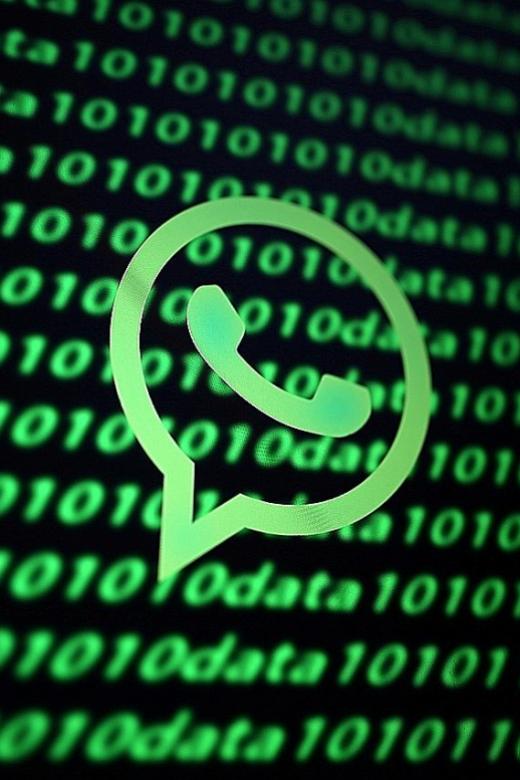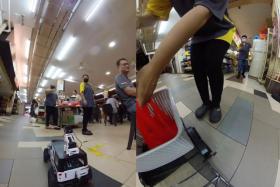WhatsApp rolls out fact-check feature to fight fake news
To be rolled out as a pilot in seven countries, it will appear as a magnifying glass icon next to viral messages
Popular messaging service WhatsApp has stepped up the fight against disinformation and fake news by rolling out a new feature to allow users to check the contents of viral messages.
The fact-check feature will appear as a magnifying glass icon next to messages that have been forwarded through five or more people.
Tapping on the icon will allow users to upload the message onto their Web browser to perform Google searches for related news, so users can do their fact-checking - without WhatsApp ever seeing the message itself.
A screenshot on WhatsApp's blog shows that the feature will allow a message containing the claim that "drinking fresh boiled garlic water will cure Covid-19" to bring up three fact-checking websites stating that it is false.
"We're piloting a simple way to double-check these messages by tapping a magnifying glass button in the chat," said WhatsApp in announcing the move in a blog post on Monday.
"Providing a simple way to search messages that have been forwarded many times may help people find news results or other sources of information about content they have received."
The feature will be rolled out as a pilot initially in seven countries: Brazil, Italy, Ireland, Mexico, Spain, Britain and the US.
Users need to download the latest version of the app.
Asked when the feature will be rolled out in Singapore, a spokesman here told The Straits Times: "We will be closely monitoring this pilot and will make any decisions on future phases based on user feedback to both WhatsApp and Google."
Widely forwarded messages can be dangerous as they often come with the implicit approval of a friend or family member.
But cracking down on the spread of fake news on the platform has not been easy as messages are encrypted.
This allows users to exchange videos, texts and images without any oversight from independent fact-checkers or even WhatsApp itself.
For instance, in India, Prime Minister Narendra Modi's message in March to Indians to show their appreciation for front-line medical workers by clapping and banging plates was misrepresented as a virus-beating tactic via WhatsApp.
VIBRATIONS
One message on WhatsApp read: "Clapping, conch blowing by (1.3 BILLION) people at the same time will create so much vibrations that virus will lose all potency."
Fearing false information would hinder India's efforts to control the pandemic, its Press Information Bureau's fact-checking team responded on social media with: "No! The vibration generated by clapping together will NOT destroy #Coronavirus infection."
In Singapore, government agencies debunked about 40 instances of speculation, rumours, scams and outright falsehoods about the Covid-19 outbreak over all social media platforms in the first five months of this year.
WhatsApp's parent company Facebook has also been the subject of global scrutiny over its role in the spread of fake news and disinformation.
Get The New Paper on your phone with the free TNP app. Download from the Apple App Store or Google Play Store now



